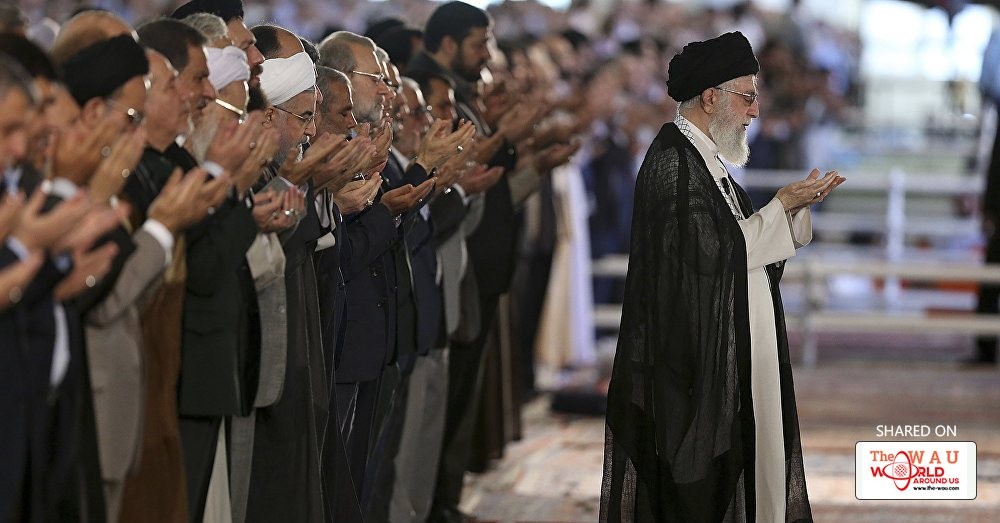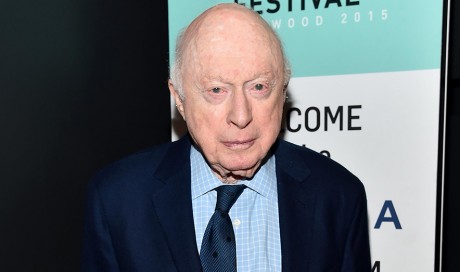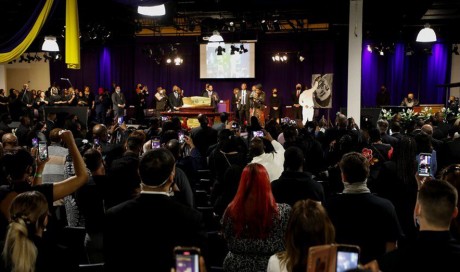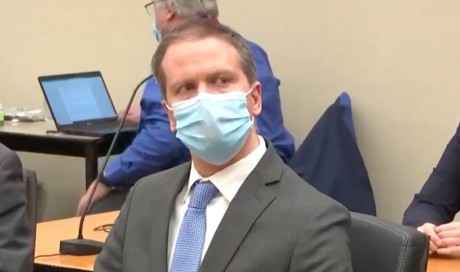On July 17, Ayatollah Ali Khamenei, Iran’s supreme leader, turned 78. Russian political analysts told Sputnik that the country's Assembly of Experts is currently working on their plans for the next Supreme Leader in Iran. They elaborated what they might be and what impact the US administration could have on it.
On July 17, Iran’s supreme leader Ayatollah Ali Khamenei turned 78. Back in April, the Foreign Policy magazine reported that the rumors of his bad health have circulated for over a decade already.
"Although Khamenei’s prognosis remains closely guarded, the Iranian government is evidently treating his succession with urgency. In December 2015, Ali Akbar Hashemi Rafsanjani, a former president and a kingmaker, broached the usually taboo subject when he publicly admitted that a council within the Assembly of Experts, the body that selects the supreme leader, was already vetting potential successors," the magazine then wrote.
Russian political analysts confirmed to Sputnik that the country's Assembly of Experts is currently working out plans of the next Supreme Leader in Iran.
"The power of Iran's Supreme Leader in the country is truly limitless. For his life term, he remains the country's Commander-in-Chief, the Head of the Islamic Republic and the Religious and Ideological Leader, by having a hold on all the spheres of life in the county. While the country's President, who is elected every four years, remains only the second person in the country and is obliged to follow the general line, set forth by the Supreme Leader and his allies," Vladimir Sazhin, a senior research fellow at the Institute for Oriental Studies of the Russian Academy of Sciences explained to Sputnik.
He said that the possible departure of Ayatollah Ali Khamenei from his post might become the largest political change in the Islamic Republic for the last 28 years, since 1989, the year when Ruhollah Khomeini, the founder of the Islamic Republic of Iran and the leader of the 1979 Iranian Revolution died.
After Khomeini's death, Ayatollah Ali Khamenei, was elected as the new Supreme Leader by the Assembly of Experts. Since then, he has substantially reformed the country's political system by, on the one hand, imposing a financial bureaucratic control over the country's institutions of religious power, and on the other hand, by granting it with additional powers and privileges.
At the same time, he consistently decreased the role of the elected government by creating parallel structures and placing his direct and indirect representatives into the country's ministries, universities and armed forces.
The political analyst explained that the volume of power, concentrated in the hands of Iran's Supreme Leader, is of such extent, that his replacement might cause truly tectonic shifts in the internal and foreign policies of the Islamic Republic with a population of 80 million. The most dangerous in this situation is an ill-considered interference and pressure. However the Trump administration seems to be doing exactly this.
According to Vladimir Sazhin, among the options reviewed by the Assembly of Experts, instead of the position of the Supreme Leader, they might set up a collegiate authority, which will consist of three or even five representatives of the clerical establishment.
Under another scenario, there will be the Supreme Leader, however his political powers will be considerably limited in favor of the President. The third variant suggests that everything remains as it is.
"In the third case, everything will depend on the candidacy which the Assembly of Experts designates as the new Supreme Leader," the political analyst told Sputnik.
Director of the Center for Middle Eastern and Central Asian Studies Semyon Bagdasarov however argued that regardless of the absolute power possessed by the Supreme Leader, any replacement to Ayatollah Ali Khamenei will be a religious conservative. We should not expect any sharp changes in the internal and foreign policies of the country.
According to Alexander Maryasov, an expert of the Valdai Club and former Russian ambassador to Iran (2001-2005), the generation of revolutionary allies and followers of Ruhollah Khomeini, who created and secured the running of the theocratic and extremely ideology-driven state of the Islamic Republic of Iran, are gradually leaving the country's political stage.
However in the nearest future we should not expect the sharp change in the political course of the country, he said. Nobody in Iran is interested in revolutionary change or "rocking the boat." All the powers seem to be satisfied with the evolutionary development of the country.
The political analysts also commented on the role the US might play in further developments in the country's political arena.
"The US would like to topple the Iranian regime under the Afghan or Iraqi scenario, however even the Pentagon understands that it is impossible. For such an operation, they will need not less than a million US servicemen, however even then there is no guarantee that it will be a success, Hence Washington has chosen another strategy," Semyon Bagdasarov told Sputnik.
This strategy is in intensifying economic pressure on Iran with the help of new sanctions, and secondly, in support of separatist sentiments within the country among the Kurdish, Baluchi and Arabic-Sunni populations, he explained.
Thirdly, it is the elimination of the Shias. That is why the US and its allies are engaged in fighting on the border between Iraq and Syria – to prevent control of Iran over these territories.
President Donald Trump has abandoned Obama's policy of "strategic patience" towards Iran and called the nuclear deal with the country the "worst-ever agreement." Bagdasarov explained that such a change in sentiment from the White House happened under the direct influence of Israel.
However whatever the actual cause is, any attempts to intensify pressure on Iran will hardly lead to the regime becoming more pro-western, in fact, the opposite would happen.
More than 60 years ago the coup in Iran, which was instigated and carried out by western intelligence agencies, led to the increase of clerical sentiments and the Islamic Revolution of 1979.
"The intensification of pressure, economic sanctions and military threats will only result the entrenchment of the Iranian regime and a strengthening of the 'besieged fortress' ideology. And vice versa: the elimination of political, economic and military threats will set up the pre-conditions for the democratic development and progress within the country," former Russian ambassador to Iran Alexander Maryasov concluded.
Share This Post












